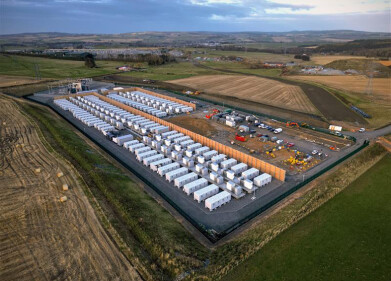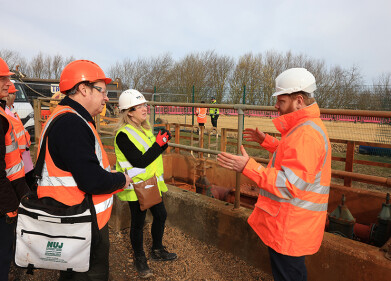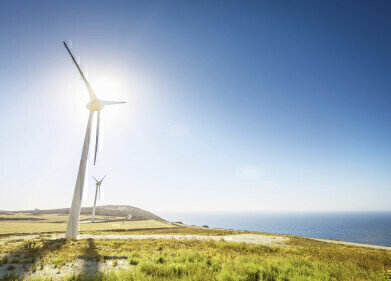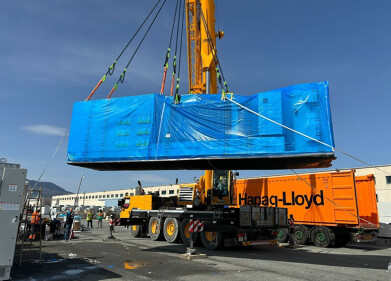Green energy
Ofwat’s Totex challenge – Mapal Green Energy show how to keep a lid on wastewater processing costs
Oct 29 2015
UK water companies follow a well-established five-year Asset Management Plan (AMP) to ensure continuous improvements in service delivery based on guidelines set by the regulator of the water and sewerage sector in England and Wales, OFWAT. One of OFWAT’s most important jobs is to regulate the industry price limits, ensuring that investors get sufficient returns while customer interests are not compromised through steeply rising water bills.
One area regulated by the AMP process is capital investment. In contrast to 2010-15 period, the capital investment limit for the 2015-2020 plan will be GBP 44.3 billion, which is lower than the projections supplied by the water companies at GBP 45.7 billion. An immediate and inevitable consequence therefore is that the sector will need to enhance productivity and become more cost-efficient. This means buying smarter and in the case of wastewater treatment, managing sewage treatment and assets more efficiently.
Historically, the water companies have been targeted and positively incentivised to spend less on capital than is provided for in an AMP cycle, but for the period 2015 – 2020 this targeting has now been switched to the new concept of Totex, for example, capital and operational expenditure. Going forward, this means companies will now need to focus not just on the cost of new installations, but also on operational and maintenance bills. Equally, the new OFWAT rules presents the utilities with a more complex challenge, namely to examine historical installations and determine whether it may in fact be beneficial to replace these with new technology offering lower operating costs.
Over the period of the Plan, wastewater expenditure is forecast at nearly £21 billion across all companies, with up to 50% of this accounted for by wastewater treatment costs, as the water companies are also obliged to improve performance to meet the new discharge standards prescribed by European regulation. Controlling wastewater processing costs is therefore likely to become highly significant, both in the context of existing and new installations.
This presents a new raft of challenges for the water companies who may already have stretched resources. Now not only do new projects now need to be planned to ensure Totex compliance, but also existing installations will need to be audited to ensure they too pass the Totex test. The water utility firms may want to turn to the in house expertise available in Tier 1 contractors such as Xylem, who already have a track record of being able to dovetail with clients to fill in resource gaps and add value through specialist industry knowledge. Adam Bond, Sales Manager – Biological Treatment at Xylem Water Solutions UK comments: “We now have a clear motivation for companies operating under the AMP regime to look at old installations and to see how they can lower current running costs. In some cases, these costs are may not be accurately captured or broken down in detail, so there could be work needed to set up new monitoring systems, for example. We can then use our experience to help determine if the most effective way forward is to optimise the use of an existing asset or replacement with new technology such as that offered by Mapal GE.”
New technology providers such as Mapal Green Energy are also well positioned to add their experience in to the mix. Such experience is based on a proven track record of delivery green solutions in the wastewater arena which are both more efficient when it comes to delivering aeration and also more energy efficient in terms of power usage. Such technologies are likely to be essential in the battle to meet the Totex challenge. Mapal’s floating fine bubble aeration (FFBA) systems are designed to outperform existing mechanical surface aeration units in wastewater lagoons, reactors, ponds and lakes. With no moving parts, energy bills are substantially reduced – by 22% in the case of an installation run by Anglian Water. Their new technology offers aeration systems with no moving parts and fast switchover possibilities, as wastewater plants do not need to be drained for new installations.
Mapal Green Energy CEO Zeev Fisher ends: “We believe AMP6 will give a huge boost to our plans to roll out our floating fine bubble aeration technology across the utility sector. We currently have active projects with Thames Water, United Utilities and Anglian, all of whom have recognised the important energy savings possible from our FFBA technology. Add to that lower maintenance and faster switchover times and we believe the Mapal proposition will be a powerful one for many who must now review their existing capital and total expenditure models in the industry.”
Events
Mar 18 2025 Expo Santa Fe, Mexico
Mar 18 2025 Moscow, Russia
Mar 19 2025 Manila, Philippines
Mar 20 2025 Guangzhou, China
Mar 24 2025 National Harbour, MD, USA















